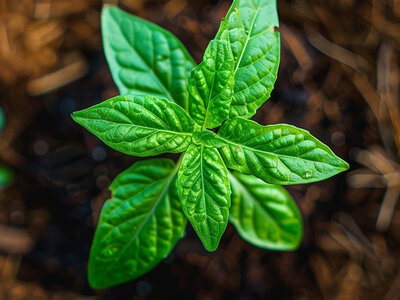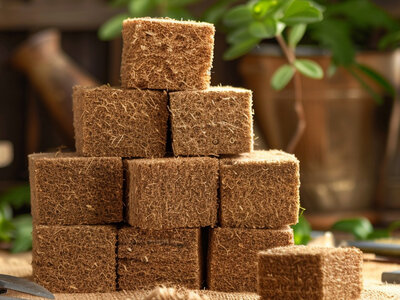Gardening enthusiasts and professional growers alike are often faced with the choice between using cocopeat and traditional soil. Both mediums have their own unique benefits and drawbacks, but which one is truly better for your plants? In this article, we’ll compare cocopeat and traditional soil to help you make an informed decision for your gardening needs.
What Is Cocopeat?
Cocopeat, also known as coir pith, is a natural byproduct derived from the husk of coconuts. It’s processed to form a lightweight, spongy growing medium that retains water and nutrients exceptionally well. Cocopeat is often used in hydroponics, container gardening, and as a soil amendment.
What Is Traditional Soil?
Traditional soil is the natural medium found in gardens and landscapes. It is composed of minerals, organic matter, air, and water. Soil provides nutrients to plants and supports a wide range of microbial life that contributes to plant health.
Water Retention and Drainage
- Cocopeat: One of the standout features of cocopeat is its excellent water retention capacity. It can hold up to ten times its weight in water, ensuring that plants have consistent access to moisture. Despite this, cocopeat also provides good drainage, preventing waterlogging and root rot.
- Traditional Soil: The water retention and drainage capabilities of traditional soil can vary widely depending on its composition. Sandy soils drain quickly but retain little water, while clay soils hold water well but can become compacted and poorly drained. Loamy soils strike a balance between retention and drainage.
Aeration
- Cocopeat: Cocopeat’s fibrous structure provides excellent aeration to plant roots. This promotes healthy root growth and prevents soil compaction, allowing roots to access oxygen more easily.
- Traditional Soil: Soil aeration depends on its texture and structure. Compacted or clay-heavy soils can restrict root growth and oxygen availability, while well-structured loamy soils offer good aeration.
Nutrient Holding Capacity
- Cocopeat: Cocopeat has a high cation exchange capacity (CEC), meaning it can retain and release nutrients effectively. This makes it an excellent medium for delivering nutrients to plants over time.
- Traditional Soil: Soil’s nutrient-holding capacity depends on its organic matter content and texture. Soils rich in organic matter generally have higher CEC, providing a steady supply of nutrients to plants.
Sustainability
- Cocopeat: Cocopeat is a renewable and sustainable resource, as it is made from coconut husks, a byproduct of the coconut industry. Using cocopeat helps reduce waste and supports sustainable agricultural practices.
- Traditional Soil: While soil is a natural resource, its quality can be degraded by practices such as over-farming, deforestation, and improper land management. Sustainable soil practices are essential to maintaining soil health and fertility.
Ease of Use
- Cocopeat: Cocopeat is lightweight and easy to handle, making it a convenient choice for container gardening and hydroponics. It is also pH-neutral, reducing the need for pH adjustments.
- Traditional Soil: Working with traditional soil can be more labor-intensive, especially if amendments are needed to improve its structure, fertility, or pH levels. However, soil is readily available and familiar to most gardeners.
Cost
- Cocopeat: The cost of cocopeat can be higher than traditional soil, especially if purchased in small quantities. However, its long-lasting nature and benefits can offset the initial investment.
- Traditional Soil: Traditional soil is generally less expensive and more accessible. However, the cost can increase if amendments or treatments are required to improve its quality.
Conclusion
Both cocopeat and traditional soil have their own distinct advantages and are suitable for different gardening needs.
- Use cocopeat if you need excellent water retention, aeration, and a sustainable growing medium. It’s especially beneficial for container gardening, hydroponics, and as a soil amendment.
- Use traditional soil if you prefer a natural, cost-effective medium that supports a diverse microbial ecosystem. Proper management and amendments can optimize soil for various gardening applications.
Ultimately, the best choice depends on your specific gardening requirements and goals. For those looking to explore the benefits of cocopeat, Ventura Agro in Sri Lanka offers high-quality cocopeat products that can help your plants thrive. Embrace the advantages of cocopeat and see the difference it can make in your garden. Happy gardening!


